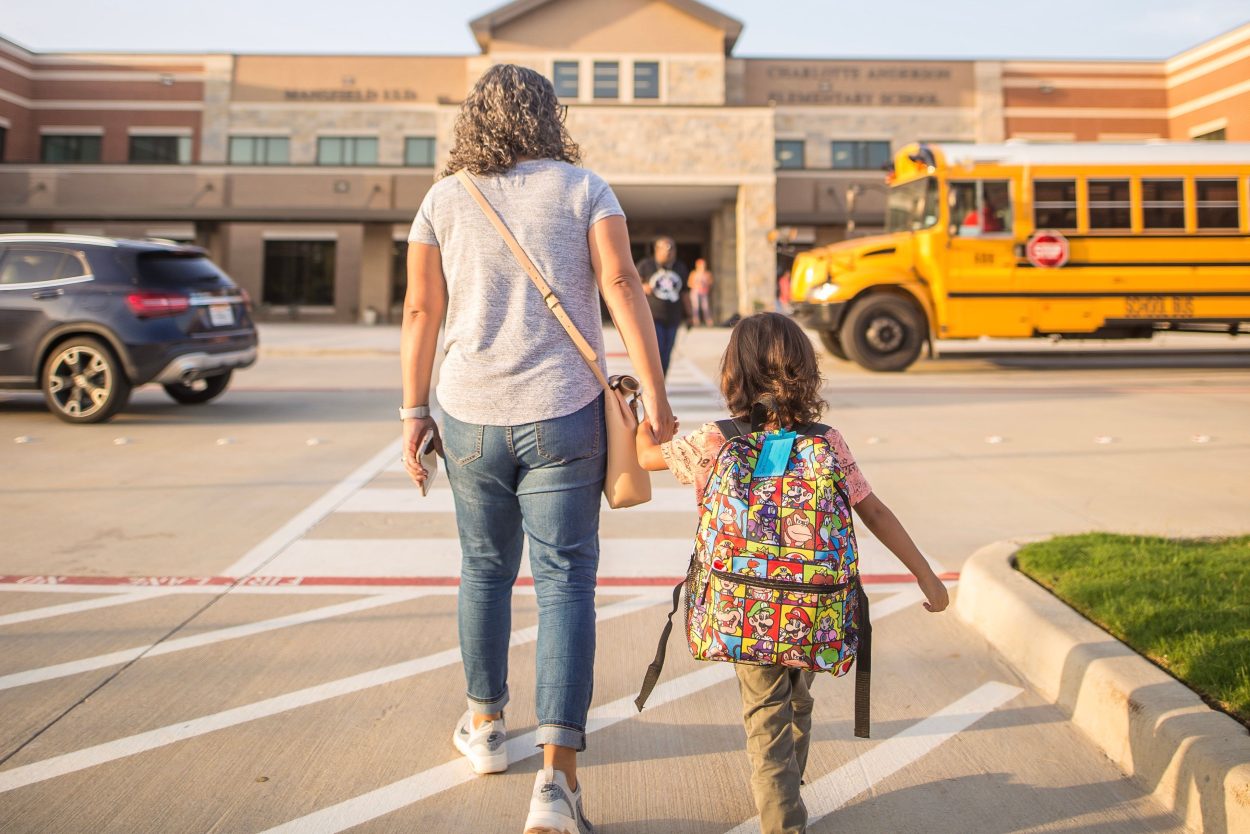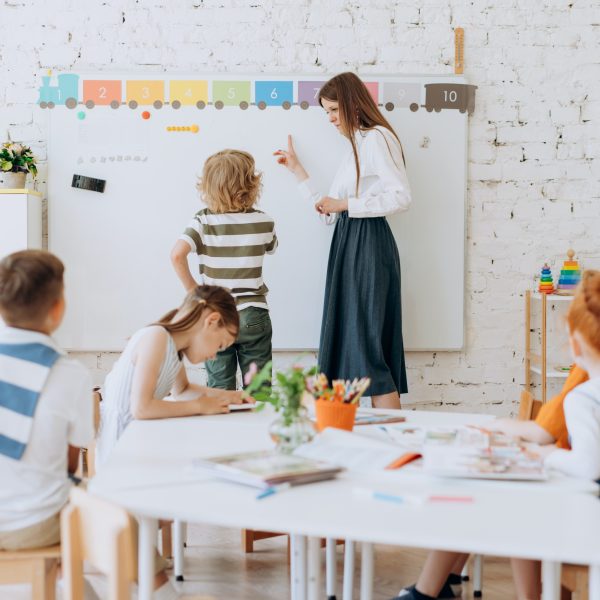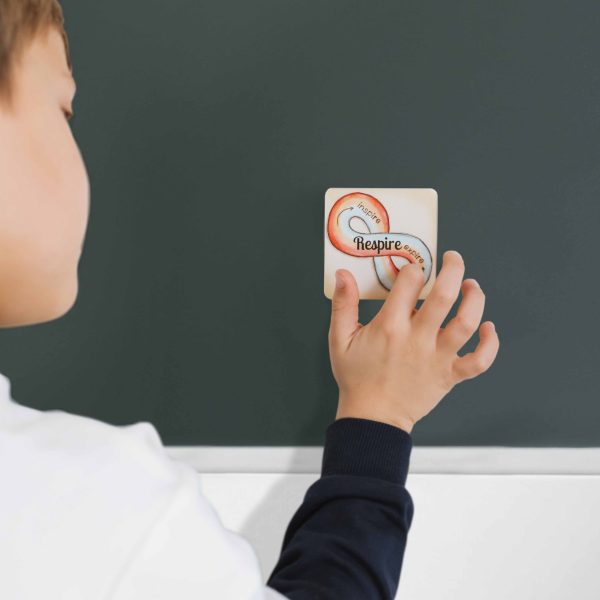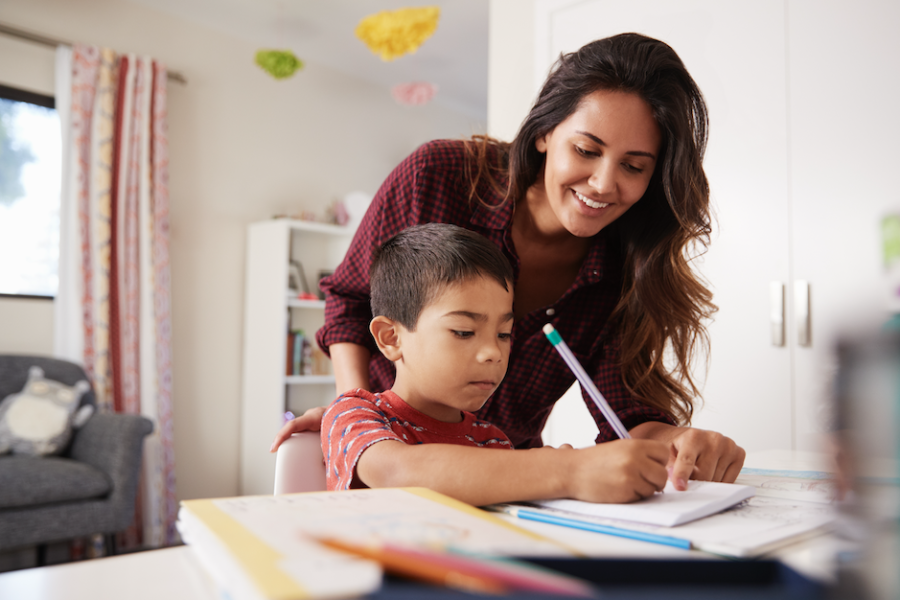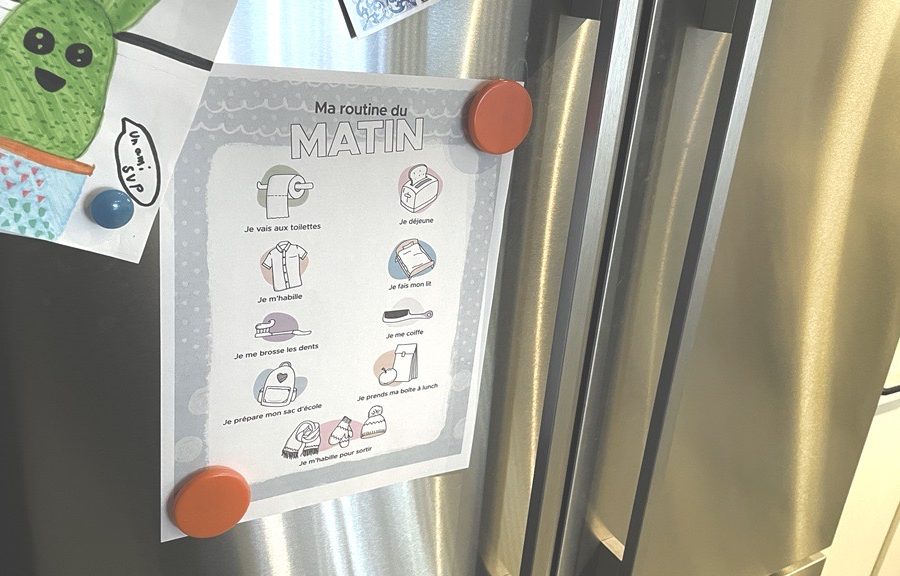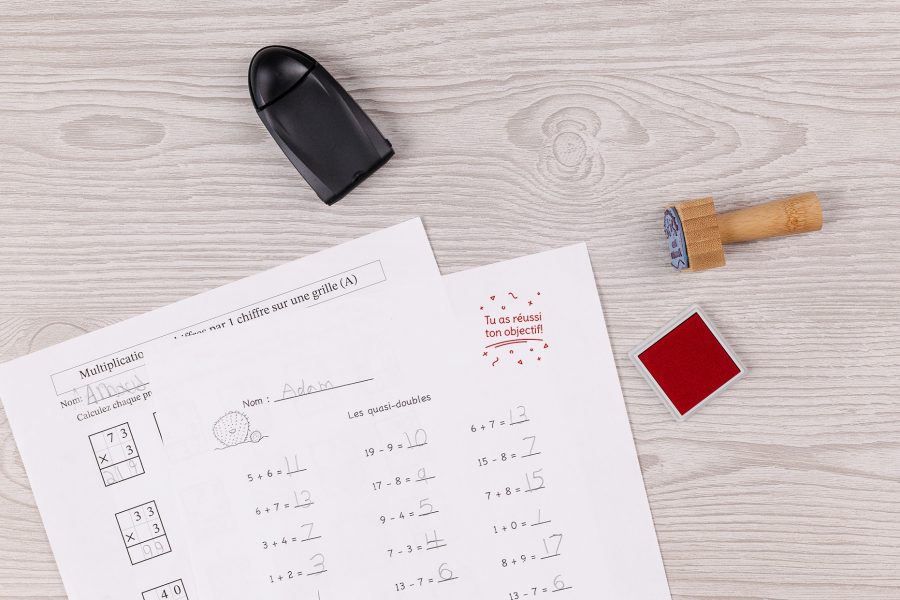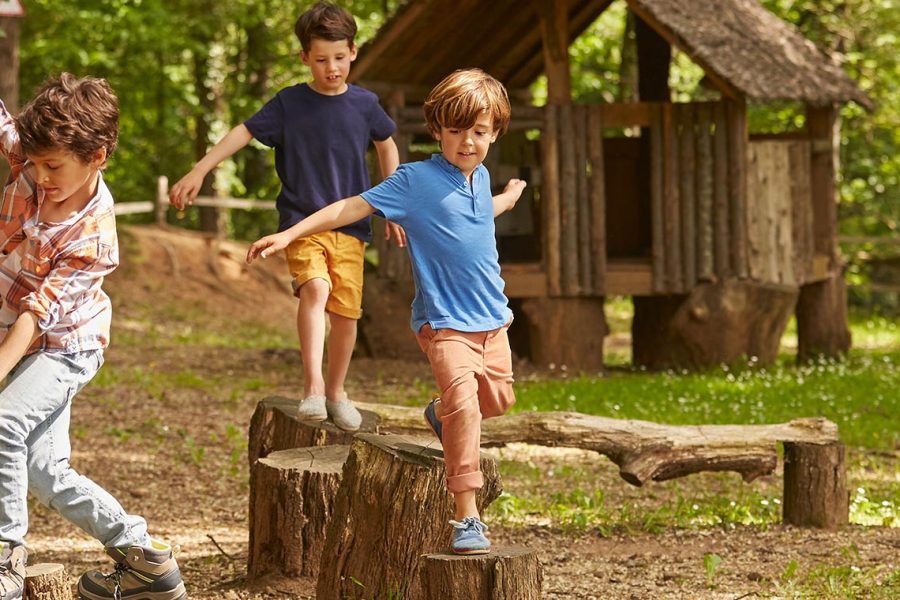The first day of school, and particularly kindergarten, is more than just a milestone in your child’s life. It’s a memorable moment filled with emotions and anticipation, both for the little ones taking their first steps into the world of education and for the parents who support them on this journey. But make no mistake; those first days of school are about more than just story times, lesson plans and school supplies. It holds tremendous significance as it sets the foundation for everything that follows.
In this article, we will explore the importance of the first day of school and kindergarten. We’ll also explore how it can set the tone for the rest of the elementary school year. We will share practical tips to help parents and children succeed in the transition and kickstart this new phase of their school life on the right foot.
Preparing Your Child Mentally and Emotionally
To best prepare your child for the first day of school, focusing on their mental and emotional readiness is important.
One of the most effective ways to do this is by openly discussing what to expect on the first day of kindergarten. Explain the day’s schedule, from when they leave home to when they return. Answer all their questions and ensure they understand that school is a fun place where they’ll learn new things, enjoy a fun activity each day, sing songs, and make new friends.
You can also read books about the first day of school together. These children’s stories often address the emotions and challenges they may encounter, helping to demystify kindergarten and school.
Encourage your child to share their anxieties and fears with you. Providing a safe space for them to express themselves will help reduce their stress and boost their confidence ahead of the big day.
Morning Routine
A well-established morning routine plays a crucial role in the success of the first day of kindergarten. According to Naître et grandir, explaining the new routine to your child is essential to prepare them for their first week of school and manage expectations. For instance, you can tell them that before and after school, they’ll go to daycare, and there won’t be any naps during the day. You can also:
- Encourage your child to wake up early to have enough time to get calmly ready.
- Start the day with a nutritious breakfast, which will provide them with the energy needed for the morning.
- Opt for comfortable and weather-appropriate outfits, considering the possibility of outdoor play.
- Help your child prepare a backpack with essentials like a water bottle, a good lunch, snacks, and anything else they might need at school.
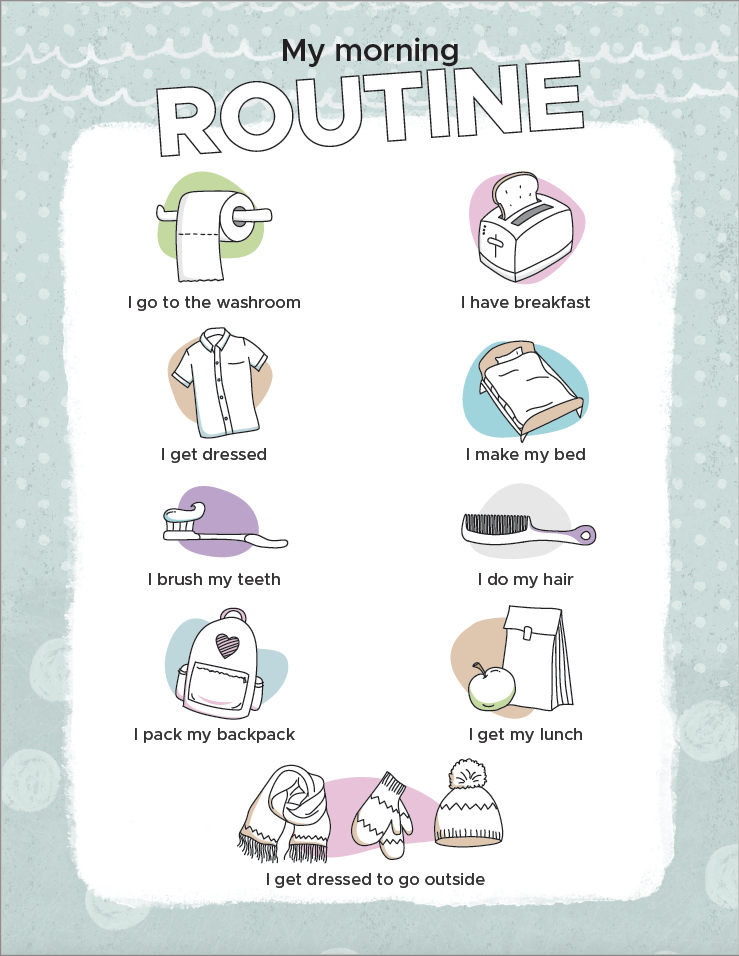
Make this routine sound like a fun activity! If you’re looking for more detailed advice on setting up an effective morning routine, you can check out our blog post “More Independent Children: Help Them with the Pictograms of a Morning Routine“, where you will find useful information to start the day, along with a printable PDF guide to help your family establish an effective morning routine!
Arrival at School
When you arrive at school on the first day, punctuality is essential. Arriving a few minutes early is recommended, allowing your child to socialize with other children in the schoolyard. These initial interactions can help ease some anxieties and establish valuable bonds with their peers.
Arriving early also provides an opportunity to meet your child’s kindergarten teacher and perhaps briefly interact with other parents. This helps build a sense of community and confidence in the educational process.
If the school offers a classroom visit, take advantage of this opportunity. It allows your child to become familiar with their classroom environment, locate items like their locker or play areas, learn the different rules, and reduce anxiety about the first day of school. This can help minimize first-day jitters and increase your child’s comfort regarding their kindergarten teacher’s expectations.
Meal and Snack Time
This will likely be the first time your child eats a homemade lunch.
Prepare your child by discussing dining etiquette and lunchroom procedures, such as staying seated and tidying up after eating. Encourage them to interact with their classmates during meals, as it can be an opportunity to form long-lasting friendships.
Ensure you pack a nutritious meal and snack in their lunch boxes, including a variety of healthy foods. If you’re ever looking for quick snack ideas, the “maman favoris” blog offers 22 snack ideas ready in less than 5 minutes! Don’t forget to include a water bottle in their backpack to keep them hydrated throughout the day.
Building Connections
One of the most enriching experiences in kindergarten is the opportunity for your child to make new friends. Encourage them to interact with their classmates and participate in group activities. The first day of class can be intimidating, but by encouraging your child to share, play, and converse with others, you help them establish precious connections that can last a lifetime.
Furthermore, teachers and school staff play a key role in fostering these connections. They often organize activities to help children get to know each other and create a warm and welcoming environment. By promoting communication and collaboration among students, kindergarten teachers help strengthen bonds within the class, allowing everyone to feel included and valued. This sets a positive atmosphere for the rest of the school year.
End-of-day Routine
The end-of-day routine in kindergarten is a major step to ensure your little one finishes their day positively. When you pick them up from school on the first day, try to arrive a bit early. Children look forward to reuniting with you and sharing their day’s experiences. Take a moment to discuss the events and fun activities that took place at school. This shows your child that you’re interested in their day and appreciate their adventures.
Back at home, you can help your child prepare for the next day by checking their backpack to ensure they have everything they need. It’s also the perfect moment to begin your family’s evening routine, including dinner, lesson plans, bath time, story time and bedtime. Make sure your child has enough time to rest and recharge, as naps are no longer part of the kindergarten schedule. Following a reasonable bedtime routine will allow them to get some rest and be ready for a new day of kindergarten learning. In kindergarten, teachers recommend bedtime between 6:30 PM and 7:30 PM since naps are no longer taken. This routine is necessary to be refreshed for the next day of school.
Other tips for Parents
As a parent, never underestimate the active role you play in your child’s success on their first day of kindergarten. Maintain a positive and calm demeanour. Children can sometimes sense first-day anxiety, and your optimistic attitude can reassure them. Be a source of support and encouragement for your child, showing them that school is an exciting and fun place. Let’s face it, who doesn’t like colouring, songs, recess, story time and books?
Engaging with your child’s kindergarten teachers is also vital. Stay informed about classroom activities, your child’s progress, and upcoming events. Teachers are there to help you understand your little one’s adjustment process and address any questions you may have.
Be patient with your child’s adaptation period. Everyone adjusts at their own pace, and it’s normal to encounter challenges along the way. Give them time to acclimate to their new environment and school routine. Be there to support and encourage them throughout the school year.
Don’t forget to label your child’s school supplies (even those tiny plastic dishes in their lunchbox!) with our amazing personalized labels!

Conclusion
In conclusion, the first day of kindergarten is a significant milestone in your child’s life. It marks the beginning of their formal learning journey, the establishment of relationships with teachers and classmates, and the development of crucial skills for the future. Recognizing the importance of this transition and actively playing a parental role will go a long way to help your child adapt to an entirely new routine. Throughout the school year, continue to offer unconditional support and encouragement to your child. This will help them maintain their enthusiasm for learning, overcome any challenges they may face, and build their self-confidence. Remember that every child is unique, and it’s normal to experience ups and downs. With an ongoing dedication to your child’s well-being and open communication with kindergarten teachers, you can contribute to making this first year of school a positive and enriching experience. Before long, they will be starting first grade!

